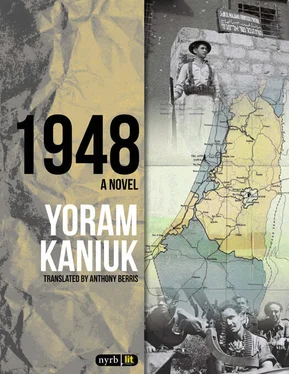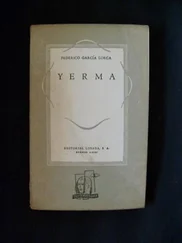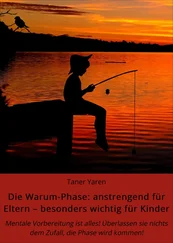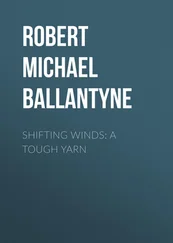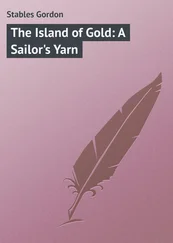I left my friends, who lay down deadbeat and fell asleep in the middle of the biting cold of the desert, and walked away slowly. The blackout enforced in the country throughout the war had now been lifted, and intoxicated I looked at the beautiful lights flickering from afar: Hebron, Bethlehem, Beit Jallah especially, but Jerusalem too. That colorful scene in the middle of the night moved me; one of my friends, I don’t remember who, came looking for me, and found me — a schmuck standing on the cliff edge. I pointed at the lights and told him that it looked like the Christmas I’d seen at the Migdalor Cinema in the film It’s a Wonderful Life , with James Stewart, who out of the goodness of his heart sacrificed himself for his family, and he was in despair, grieving for his lost and wasted life and he came to a bridge over a frozen river to leap to his death. At that moment appears Clarence, a chubby angel sent to help him and who’s working on earning his wings and has to do a good deed to win them. Clarence jumps into the river and shouts for help, and Stewart, who hears him, jumps into the freezing water and rescues him, and the angel screens a flashback of Stewart’s life, and Stewart sees how he changed the lives of so many people and how much goodness he showered on them and how selfless he was, and he takes back what he’d said, that it would have been better if he hadn’t been born, and he comes back to reality, and all the people he helped in his life come to his house with presents, and all this happens on Christmas Eve, with the tree, the lights shining from it, the tiny fairy lights on its branches, and a great light shines as the bell on the Christmas tree tinkles, and Stewart’s daughter says that when the ringing is heard, it means that an angel has earned his wings.
My friend was amazed by the story, which in his view was so alien to the Jewish Masada, the mistaken choice of death, which is innocent of any tree or sound. You’re crazy, Yoram, he yelled. What’s Masada and Jewish heroism got to do with a shitty film at the Migdalor? And I said to him, Perhaps there is a connection but only in my twisted mind. Masada lay deep inside me, troubling me, I was obsessively preoccupied with the glory of death and liberty, and also with the genocide, in that a people like that had punished itself with genocide. My mother had been among the first of this country’s sons and daughters who had climbed Masada, Masada that the Jews hadn’t liked mentioning, for they had idolized Rabbi Yochanan Ben Zakkai who fled and came down from the wall in a coffin, and who made sure it stank of excrement so that the Romans wouldn’t open it, and had asked the Romans to let him build a yeshiva in Yavneh and didn’t say that it was to save Judaism, and the Romans thought he was betraying his brethren. Afterward the great slaughter of the Jews took place, and the mass suicide so loathsome and abhorrent to the Jewish sages, and only the traitorous Flavius Josephus who wrote the history of the Jews perpetuated it.
But the Jewish-Arab struggle created a need for heroes. The people in Eretz Yisrael espoused the Masada rebels, who preferred death to slavery. Standing on that cliff facing the darkness illumining itself on the desert became a mystical experience for entire generations of Israelis.
I stood and thought that today’s Hanukkah and the long days had started to come to an end and the world is kindling lights and I heard a rock falling into the chasm and I felt I was falling, but luckily my friend grabbed me and pulled me back, and I said to him that if I’d taken one more small step I’d have become a Roman stone at the foot of the mountain.
Then I looked again at the beautiful infinite lights of the Arab towns and I said that if you stand on the edge of the abyss, as the songs back then termed our national situation, you’re like the Jews seeing Paradise beyond the end. And then a guy called Nehemiah came running and called us to help his Palmachnik friend who had been wounded by a stray bullet fired from the pistol hidden in his pants pocket because he fancied a girl he shouldn’t have. And one of the youth leaders ran ten kilometers to Kibbutz Beit Ha’arava to bring a dressing, and we sat there pressing on the shot guy’s arm so he wouldn’t lose any more blood, and only some five hours later the youth leader and a medic got back to us. We went down to the Dead Sea and saw a platoon of British soldiers there, it wasn’t easy getting down, we walked south beyond the spit and reached the Jordanian side, and the mountains loomed over us and we swam beneath them, lying on our back with our satchels sprouting from our belly like fat flowers, for we couldn’t sink but were burned by the salt water. Above us the mountains of Moab were spread proudly, and jagged projections of dark rock in the darkness of the hill, and there was a bat, and an eagle traversed the sky, and we laughed, we couldn’t believe that we really could lie on the water without sinking. A girl swam at my side, I don’t remember who she was, she reached out and touched me, and it was very unusual for a girl to touch you. I looked at the mountains, and light of sunrise began to emerge from behind them, and the desert shadowed it all into a bed of beauty, which for some reason seemed to me to be sad and perhaps even superfluous here, in the light moving over this darkness, and I held her hand in mine, I looked at her, she didn’t look at me but I felt the warmth crawling into me and I was hot. You see, I didn’t really understand the meaning of that terrible expression “the edge of the abyss,” coined by the poet Alterman, which if you’re standing on it you can see Paradise but also the opposite.
We went back to Tel Aviv and went home and my mother cried because she’d heard that I’d almost fallen off Masada. I was a bit in love with the girl who gave me her hand but by the time I realized I loved her, she’d fallen in love with somebody else. In Tel Aviv we’d swim in the sea, practice unarmed combat by the Yarkon River, hit one another in Hadassah Garden, and swim in the round pool, and we’d dance the hora and the krakowiak and talk about free immigration and the struggle against the British and agricultural training and self-realization, and we had heart-to-heart talks about Jewish destiny that we were supposed to resist and rebel against, as our poor teacher Gedalyahu Ben-Horin told us, who wanted to rebel against Perfidious Albion himself. We wanted to rebel without really understanding what exactly we were rebelling against. We read Plekhanov’s On the Role of the Individual in History . We argued about whether history creates leaders or vice versa. We read Turgenev’s Rudin and held a big trial in which I defended nihilism as opposed to the liberal dreams and trends of Turgenev’s time. Perhaps I won although I think I was actually soundly defeated, for who wanted a nihilistic revolution back then instead of a secular Hebrew kingdom, or more precisely, a socialist-Zionist revolution.
We sang “Katz’s Dad / Katz’s Mom / Yama yama shorba ” and “She’s got a screw-on leg and her head’s about to fall / And at night she hangs her head right there up on the wall.” Everybody loved coming to my house and standing on our balcony and watching Miss Gross shaving on the adjacent balcony and peering over the sea through her binoculars to see Berlin. She’d smile and say, It’s all right for you, you’re sabras, and we told her that we haven’t got prickles, and she’d laugh and say, But I have, and we could see them growing on her cheeks. And we read Panfilov’s Men over and over, which became our Bible, and Memories of the House of David , about the travails of exile and the wonders of the Jews in Spain, and I recited Ibn Ezra, which made girls like me: “I am a prisoner and with me is a man / He will not break away, he will not depart / Without a sword, he is the death of me / Without plague, he will cause my death / What am I to do? A Sisera has come / But there is no Jael of the House of Heber / Hurry and come to my defense / As did Abraham to Shemever.”
Читать дальше
